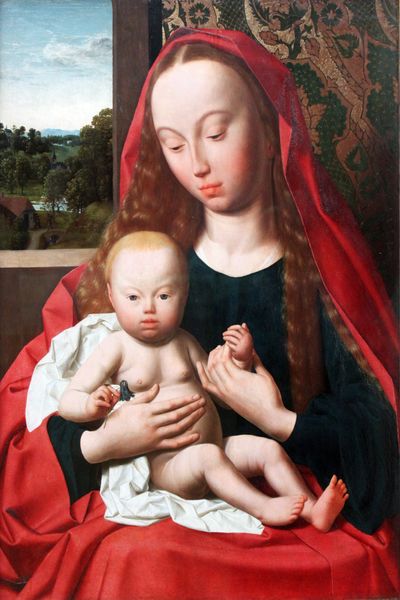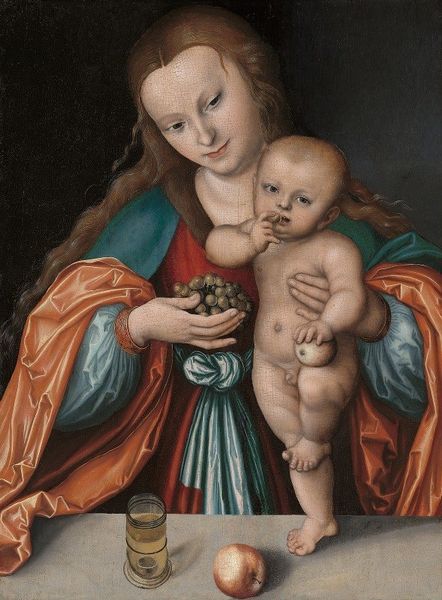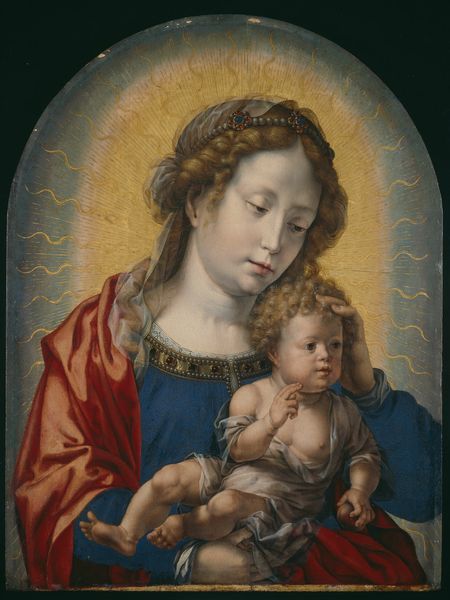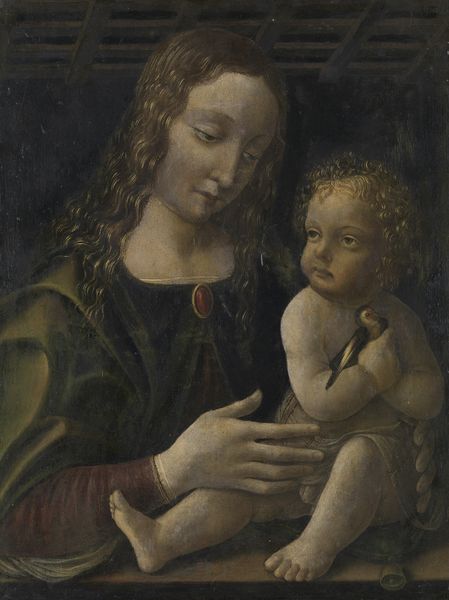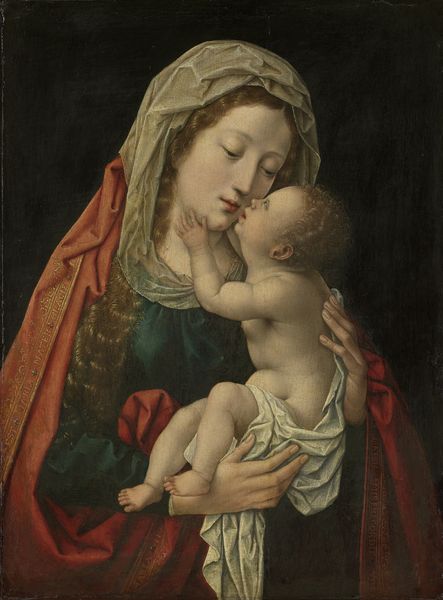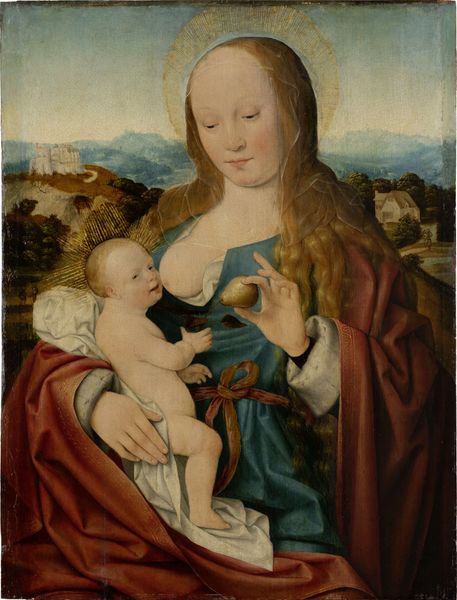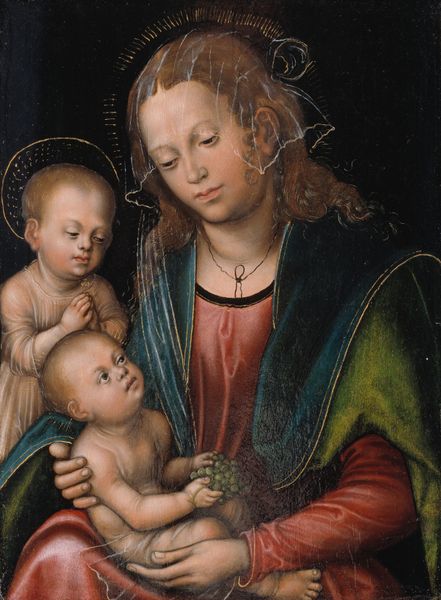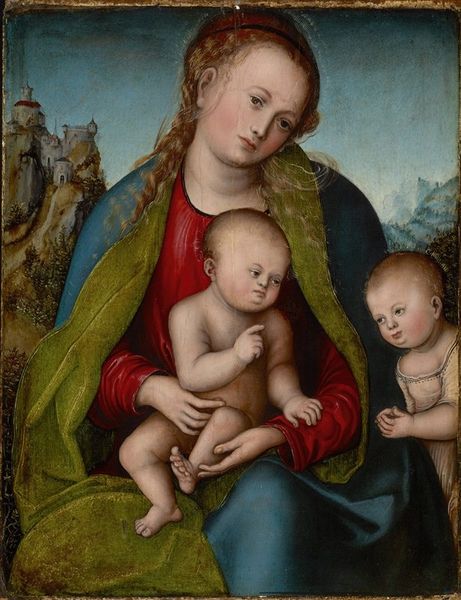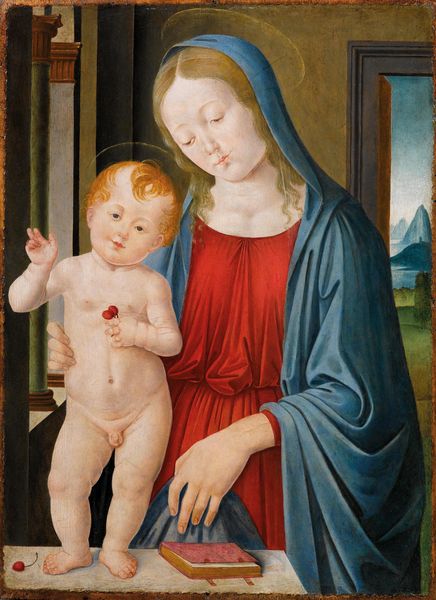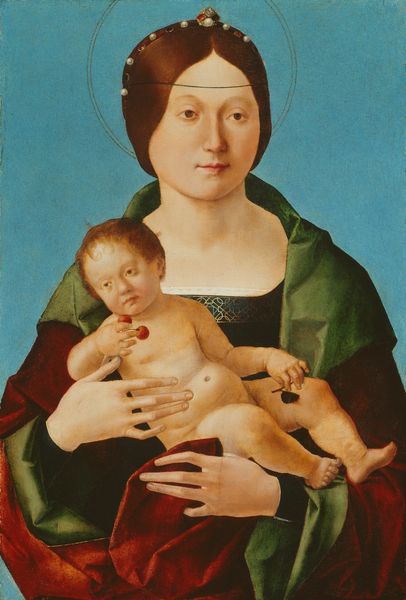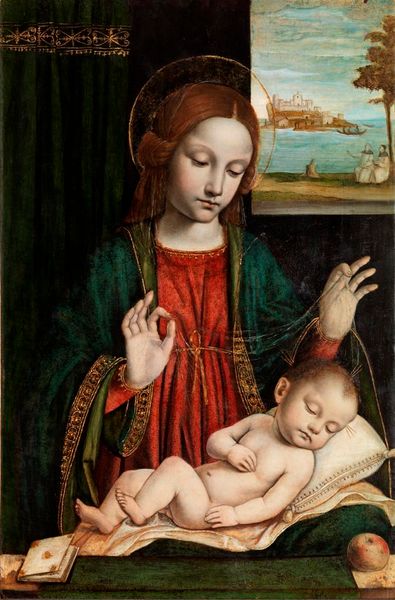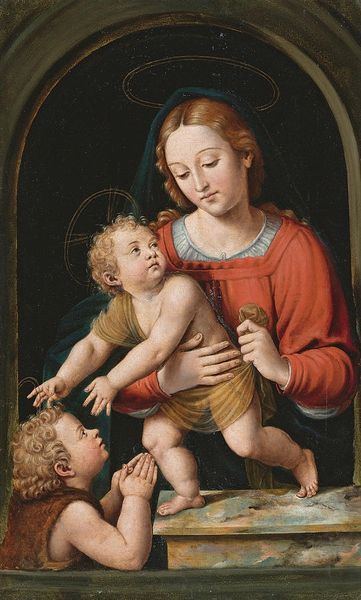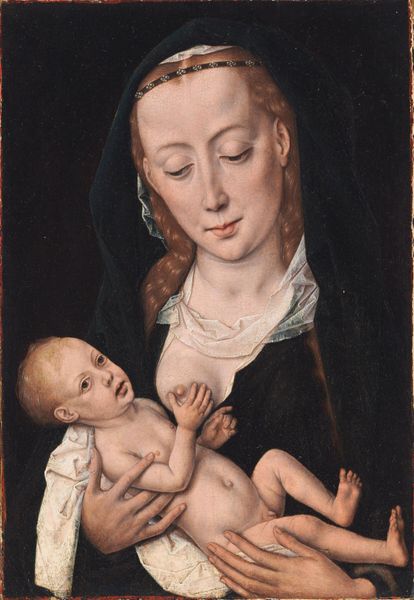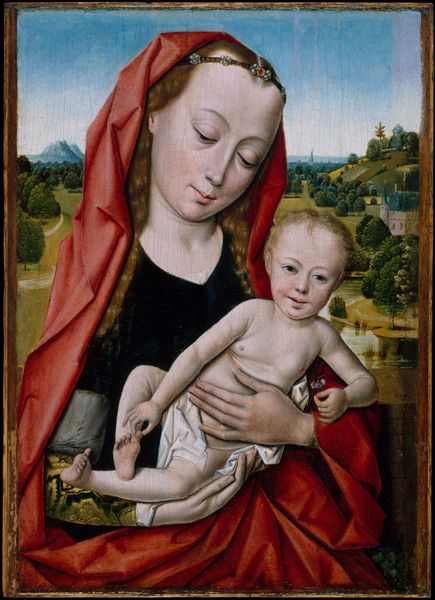
painting, oil-paint
#
portrait
#
portrait
#
painting
#
oil-paint
#
figuration
#
11_renaissance
#
northern-renaissance
Dimensions: 22 1/2 x 13 5/8 in. (57.15 x 34.61 cm) (panel)
Copyright: Public Domain
Lucas Cranach the Elder painted this "Madonna and Child with Grapes" on a wood panel. The composition strikes a delicate balance between the figures of Mary and Jesus, their forms rendered with soft modeling against a stark, dark background which pushes the figures forward. Consider how Cranach employs the grapes as a key structural component. Held by the Christ Child, they are both a symbol and a compositional pivot. This element shifts the interpretation of Mary. Rather than divine, we encounter a maternal figure. The lines of her body curve protectively around the child, while the fabric of her clothing cascades in folds, framing the scene. The painting creates a semiotic interplay, juxtaposing religious iconography with naturalistic elements. Cranach destabilizes conventional meanings, inviting ongoing interpretation rather than fixed understanding.
Comments
minneapolisinstituteofart about 2 years ago
⋮
Lucas Cranach the Elder worked in a time of religious upheaval. Martin Luther (a close associate of Cranach) led the Protestant Reformation challenging the Catholic Church, arguing that man could have a direct relationship with God without the need for a priest to intermediate. Cranach adapted familiar Catholic imagery to the Protestant Reformation. The image of Mary as a half-figure with her son Jesus Christ as a little man standing on her lap is derived from Italian prototypes of the later 1400s. Jesus holds a single grape, which he has picked from a bunch held by his mother. This refers to the belief that bread and wine turn into Christ’s body and blood during Catholic mass, a doctrine shared by Martin Luther but disputed by other reformers.
Join the conversation
Join millions of artists and users on Artera today and experience the ultimate creative platform.
